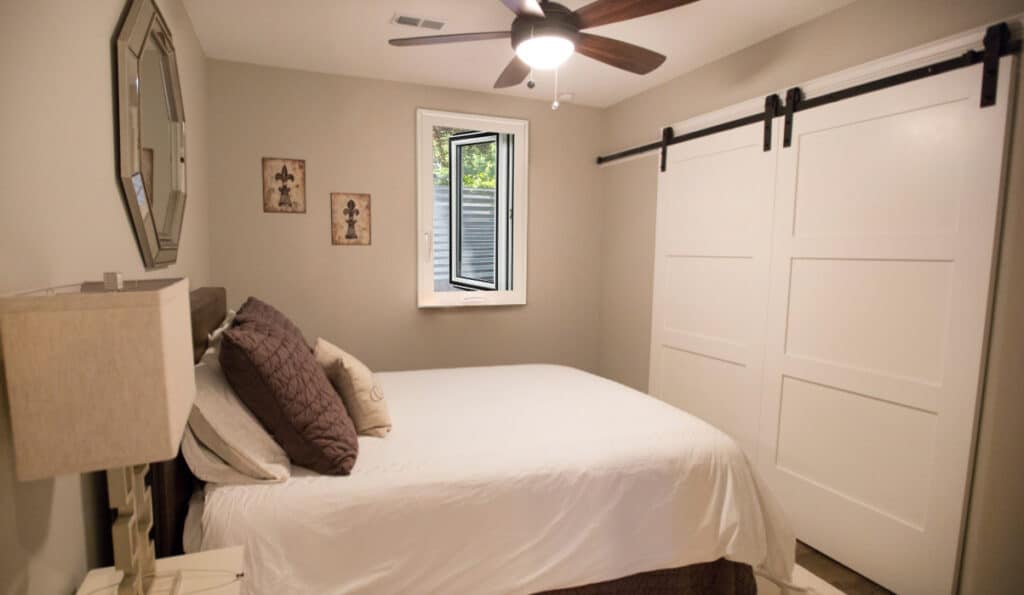Egress Window Safety Benefits: Fire Escape & Emergency Exit Requirements
Understanding how egress windows provide critical fire escape routes, emergency access for rescue personnel, and essential family protection for Minneapolis-Saint Paul basement bedrooms and living spaces.

Why Egress Windows Save Lives
Basement fires can trap occupants with limited escape routes. Egress windows provide critical emergency exits and allow firefighter access for rescue operations. Every basement bedroom or living space in Minneapolis-Saint Paul should have proper egress windows for family safety.
Fire Safety Statistics and Basement Risks
Understanding the importance of egress windows begins with recognizing the unique fire safety challenges posed by basement living spaces. According to the National Fire Protection Association (NFPA), residential fires claim thousands of lives annually, with basement fires presenting particular dangers due to limited escape routes.
Basement Fire Risks in Minnesota Homes
Minnesota homes face specific fire safety challenges during winter months:
- Heating system fires: Furnaces, boilers, and space heaters located in basements increase fire risk
- Electrical hazards: Basement electrical systems may have older wiring or overloaded circuits
- Storage areas: Basements often contain flammable materials, increasing fire spread potential
- Limited natural light: Dark conditions can delay fire detection and hinder escape efforts
- Single exit dependency: Many basements rely solely on interior stairs, which may become blocked
Critical Escape Time Factors
Fire safety experts emphasize that escape time is measured in minutes, not hours. Key timing factors include:
- Smoke inhalation danger: Toxic smoke can overcome occupants within 2-3 minutes
- Temperature rise: Room temperatures can exceed 1,000°F within 3-5 minutes
- Visibility loss: Dense smoke reduces visibility to near-zero within minutes
- Structural collapse risk: Floor/ceiling collapse can occur within 10-20 minutes
Emergency Escape Timeline
How Egress Windows Function as Emergency Exits
Egress windows are specifically designed and sized to provide reliable emergency escape routes that function even under stressful emergency conditions. Understanding their operation is essential for Minneapolis-Saint Paul homeowners with basement living spaces.
Quick Escape Capability
Properly installed egress windows enable rapid escape:
- Easy operation: Windows must open from inside without keys, tools, or special knowledge
- Adequate size: IRC R310 requirements ensure adults and children can pass through quickly
- Low sill height: Maximum 44-inch sill height allows easy climbing access
- Clear opening: Minimum 5.7 square feet provides sufficient space for emergency exit
Firefighter Access Benefits
Egress windows serve dual purposes - not only do they allow occupants to escape, but they also provide critical access for rescue personnel:
- Equipment access: Firefighters can bring tools and breathing apparatus through egress windows
- Victim removal: Unconscious or injured occupants can be evacuated through properly sized openings
- Interior attack capability: Fire suppression teams can access basement fires from multiple points
- Ventilation opportunities: Opening egress windows helps remove smoke and heat
Code Requirements Ensuring Usability
Minnesota's adoption of IRC R310 ensures egress windows provide reliable emergency access:
- Operational testing: Windows must demonstrate easy opening under normal and emergency conditions
- Clear path requirements: Window wells must provide unobstructed access to windows
- Ladder provisions: Deep window wells include permanently installed escape assistance
- Drainage systems: Prevent water/ice accumulation that could block escape routes

Beyond Fire Safety: Additional Protection Benefits
While fire escape represents the primary safety benefit of egress windows, these installations provide protection against various emergency scenarios that Minneapolis-Saint Paul homeowners may encounter.
Carbon Monoxide Emergency Escape
Minnesota winters increase carbon monoxide risks due to heating system use and reduced ventilation:
- Furnace malfunctions: Basement heating systems can produce dangerous CO levels
- Blocked vents: Snow and ice can obstruct ventilation systems
- Generator hazards: Power outage generators improperly placed near homes
- Vehicle exhaust: Attached garages with CO infiltration into basements
Egress windows provide immediate escape routes when CO alarms activate, potentially preventing poisoning or death from carbon monoxide exposure.
Flood Emergency Evacuation
Twin Cities area flooding events can create basement evacuation needs:
- Flash flooding: Rapid water rise can trap basement occupants
- Sewer backup: Municipal sewer overflows during heavy rains
- Water main breaks: City infrastructure failures affecting neighborhoods
- Spring snowmelt: Rapid melting creating localized flooding
Home Invasion and Personal Security
While less common than fire emergencies, egress windows provide security benefits:
- Alternative exit routes: Multiple escape options during home invasion scenarios
- Police access: Law enforcement can access basement areas if needed
- Family separation scenarios: Different family members can exit through various routes
- Medical emergencies: EMS access to basement areas for medical situations
Egress Windows vs Standard Basement Windows
Understanding the critical differences between egress windows and standard basement windows highlights why proper egress installation is essential for family safety.
Safety Comparison: Egress vs Standard Windows
Egress Windows ✓
- • 5.7+ sq ft clear opening
- • 24"+ height, 20"+ width
- • ≤44" sill height
- • Easy operation from inside
- • Designed for human passage
- • Code-compliant window wells
Standard Windows ✗
- • Often <3 sq ft opening
- • May be <20" in dimension
- • Often >44" sill height
- • May require tools/keys
- • Too small for emergency exit
- • Minimal or no window wells
Real Emergency Scenarios
Consider how different window types perform in actual emergency situations:
- Adult escape: Standard basement windows typically too small for adult passage
- Child assistance: High sills on standard windows prevent children from reaching/operating
- Injured person evacuation: Firefighter rescue impossible through undersized openings
- Equipment access: Emergency equipment cannot pass through small standard windows
- Panic situations: Complex latches or operations fail under stress conditions
Family Safety Planning and Emergency Preparedness
Installing egress windows represents just the first step in basement safety - families must also understand proper emergency procedures and maintain their egress systems for reliable operation.
Emergency Escape Drill Procedures
Regular family drills ensure everyone knows how to use egress windows effectively:
- Monthly practice: Each family member should practice opening and exiting through egress windows
- Day and night drills: Practice in both light and dark conditions
- Multiple scenarios: Practice with and without electricity (power outages)
- Children's procedures: Ensure children understand window operation and escape routes
- Meeting points: Establish family meeting areas outside the home
Window Operation Practice
Regular testing ensures egress windows function properly when needed:
- Monthly operation checks: Open and close windows to verify smooth operation
- Lock/latch testing: Ensure all latches operate easily from inside
- Window well inspection: Keep wells clear of debris, snow, and ice
- Screen removal practice: Practice removing screens quickly during emergencies
- Cover operation: If window well covers are installed, practice emergency opening
Maintaining Clear Window Wells
Proper window well maintenance ensures reliable emergency access:
- Debris removal: Keep wells clear of leaves, snow, and accumulated materials
- Drainage function: Ensure water drains properly and doesn't freeze in wells
- Ladder inspection: Check permanently installed ladders for security and condition
- Lighting maintenance: Install and maintain emergency lighting in window well areas
- Access path clearance: Keep basement routes to egress windows unobstructed
Legal and Insurance Implications
Legal Requirements for Rental Properties
Minneapolis-Saint Paul area landlords must provide legal egress windows for basement bedrooms. Non-compliance can result in fines, legal liability, and insurance claim denials. Tenant safety is both a legal and moral obligation.
Code Compliance Requirements
Minnesota building codes mandate egress windows for specific situations:
- New construction: All basement bedrooms must include code-compliant egress windows
- Basement conversions: Converting basement space to bedrooms requires egress installation
- Rental properties: Landlords must provide legal egress for basement rental units
- Home sales: Non-compliant basement bedrooms may require disclosure or correction
Liability and Insurance Considerations
Proper egress windows affect homeowner liability and insurance coverage:
- Personal liability: Homeowners may face legal action for injuries in non-compliant basements
- Insurance claims: Claims may be denied for losses involving non-code-compliant basement bedrooms
- Premium impacts: Some insurers offer discounts for enhanced safety features like egress windows
- Rental coverage: Landlord insurance requires legal basement bedrooms for coverage
Conclusion: Investing in Family Safety
Egress windows represent one of the most important safety investments Minneapolis-Saint Paul homeowners can make. Beyond meeting legal requirements, these installations provide critical life-saving emergency escape routes that can mean the difference between tragedy and safety during fire, carbon monoxide, or other emergency situations.
The relatively modest investment in professional egress window installation provides immeasurable peace of mind, knowing your family has reliable emergency escape routes and rescue access. When combined with proper maintenance, regular safety drills, and emergency planning, egress windows create comprehensive safety systems that protect what matters most - your family's life and wellbeing.
